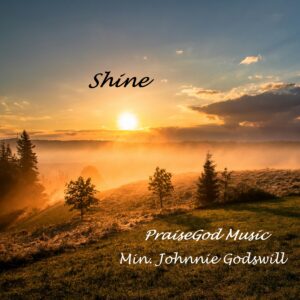

Ryan BinghamPhoto: Axster Bingham RecordsRyan Bingham was born in New Mexico, grew up in West Texas, went to high school in Houston, went to college in the Texas Hill Country and rode bulls in Laredo during a stint on the rodeo circuit. So, it makes sense to describe American Love Song, Bingham’s latest release, as a Texas album.
“That’s what we were going for,” he says. “I moved around a lot as a kid, especially in Texas. Musically, in West Texas, I was listening to Townes Van Zandt, Guy Clark. Then in Houston, it was Lightnin’ Hopkins and Mance Lipscomb. In Laredo, Mariachi music and Texas Tornados.”
For this latest album, Bingham says he wanted to make a Country Blues record. “I think it really is something I’ve been moving to in my music. It feels like my soul resonates in that place,” he says.
Bingham tapped Charlie Sexton, the acclaimed Austin guitarist and longtime Bob Dylan sideman, to produce what is both is the most personal and, at the same time, the most political album in his 12-year career.
That career began after his stint riding bulls on the Southwest rodeo circuit, during which he’d play songs for his rodeo cohorts. Their enthusiasm gave him the impetus to leave the rodeo and pursue music and form the band Dead Horses. After a pair of self-releases, Bingham signed with the respected and major-label-distributed Lost Highway Records, which released his debut, Mescalito, in 2007 and Roadhouse Sun two years later.
Then came Crazy Heart. Bingham performed two songs on the soundtrack of the 2009 drama, which starred Jeff Bridges as a down-and-out Country singer (and featured Bingham in a supporting role). One of those tracks, “The Weary Kind,” which Bingham co-wrote with producer T Bone Burnett, served as the film’s theme song.
Crazy Heart became an awards-season darling, nabbing Bridges acting trophies from the Academy Awards and Golden Globes. But “The Weary Kind” was just as lauded, scoring an Oscar, Golden Globe and Grammy.
“Personally, it didn’t have that much impact on me,” Bingham says of all of the awards and acclaim. “I still feel like I’m the same person I was before it happened. I feel lucky. It gives you a chance to play music to more people. The folks that discovered me through that song — I feel fortunate to have had that experience, that exposure. But still, I’m the same old kid from West Texas.”
Two studio albums and one live record later, Bingham decided to tell the story of that West Texas kid in his songs on American Love Story.
“It really started over the past two years,” he says of the lead-up to the album. “I started playing these acoustic shows, me and a guitar. I started telling stories about the songs and where they came from — I’d never done that before. I started writing some of those things down, about where I grew up, what I did, what I learned, and when you start writing them down, you remember more things.
“I’ve really tied it to the past, autobiographical things. But I’ve (also) been trying to write things that aren’t all about me, songs about political, social, economic things.”
That combination, Bingham says, has led to some pretty involved conversations. At times, that talk is about the music itself, whether it’s the Stones-ian Rock & Roll of “Pontiac,” the Texas Hill Country vibe of “Got Damn Blues” or one of the aching ballads. Other times, talk turns to Bingham’s past, taking off from the album’s autobiographical opener “Jingle and Go.” And sometimes, the album’s political forays lead people to ask about his views on President Donald Trump, thanks to songs like “Situation Station”: “Well I been thinkin’ ‘bout the situation/How the world is full of frustration/As the president shits upon the nation/Wipes his ass with all denominations/Turns around and begs for donations/Ridin’ on the back of a poor man sellin’ them lies.”
“It’s been a tough record to talk about because a lot of the songs are pretty layered,” Bingham says. “It’s personal, but it’s also about current events. Over the years, I’ve gotten away from writing about myself all the time. It’s a personal story, but it’s also about what people are thinking and feeling.”
The latter, Bingham said, is why he’s written the social and political songs on the album.
“From the songwriting standpoint, it all kind of goes back to Woody Guthrie, Bob Dylan and Bill Withers. They were a real influence when it comes down to the political stuff, being able to take those subjects and write about them without alienating people,” Bingham says. “Songs like ‘This Land Is Your Land’ and ‘Lean On Me,’ they have profound things they say, but we sang them in school as kids.”
Bingham doesn’t necessarily feel all songwriters have an obligation to write and perform of-the-moment political songs. But, personally, he does feel a sense of responsibility.
“I do, for myself,” Bingham says. “I’ve got two small kids. They’re 1 and 3. I remember how important it was for me when I was a kid and I heard those kind of things. I don’t want my kids to grow up and ask me, ‘Daddy, what did you say?’ or ‘Why didn’t you say anything?’ ”
Since its release in February, Bingham has taken American Love Song, “The Weary Kind” and the rest of his music all over the world.
“We’ve been playing some of the (American Love Song) songs live and fitting them in with the older stuff,” Bingham says of his touring. “The (newer) songs are a lot of fun to play live and they mean something to me as well. When you’re playing, it has to mean something, at least for me. It’s going to be a good time.”
Ryan Bingham headlines the final night of the three-day Whispering Beard Folk Festival at Smale Riverfront Park this Saturday. Tickets/more info: whisperingbeard.com.





